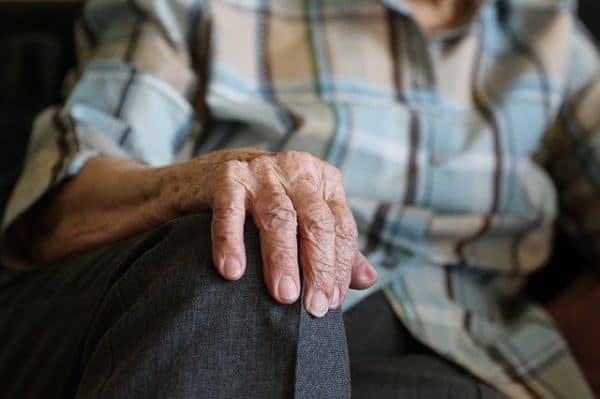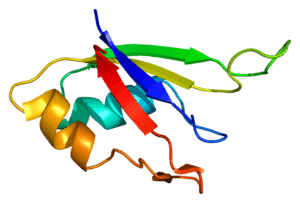There has been a huge amount of research to help those living with dementia. Read more about the newest tech innovations that could make it easier for an elderly person to stay in their own home.
TABLE OF CONTENTS:
Virtual reality for dementia care
Balancing innovation and privacy
Care and tech innovations go hand in hand
There are around 850,000 people living with some form of dementia in the UK, according to figures produced by the Alzheimer’s Society. This is a figure unlikely to fall any time soon. And many of these people are desperate to stay in their homes as long as possible.
With today’s greater understanding of the needs of dementia patients, this is more possible than ever. In our experience, this is largely due to the excellent range of home care services available to older people who prefer the idea of care in their own home to keep their independence.
Enabling a person living with dementia to remain in their own home brings feelings of security and safety. A move, whilst chosen for all the right reasons, can create confusion, fear and even a deterioration in symptoms. Therefore, innovations that empower the individual to stay in their home can have immeasurable benefits for both the sufferer and their family.
To facilitate this, research is ongoing into a raft of new tech innovations that will assist and monitor people’s ability to live safely at home through the continual assessment of a patient’s health. Here’s our pick of the best new technologies.
Robotics and AI
Technological research in robotics and AI is moving at an astonishing pace. In addition to identifying potential hazards in the home, devices can now continually monitor an individual’s physical health and feed this information back via an app to the carer in real-time.
This nonintrusive method of constant monitoring can offer a much greater level of independence when combined with fast and responsive healthcare.
Rapid development in this field is producing robotic devices which can alert someone with dementia to hazards such as liquid spills on the floor or an electrical appliance remaining switched on. Artificial Intelligence using sensors will be able to monitor vital signs like heart rate and blood pressure. In addition, it will be possible to monitor changes such as a higher body temperature or a different gait. These are sometimes early indicators of infection or a fall risk. The common scenario of the elderly person with a urinary infection which goes untreated and lands them in hospital could become a thing of the past. In addition to this, AI-Powered artificial intelligence algorithms could analyse speech patterns in order to detect subtle changes in speech. These may well help to indicate levels of cognitive decline. They could also help identify neurological conditions such as Parkinson’s disease, which can sometimes be present in people living with dementia.
Some of the most popular tech innovations include:
- Movement sensors to alert a carer to an individual’s movements in and around the home.
- Machines and talking clocks that play reminders, such as those that remind someone to take medication or turn off the gas.
- Location devices for items that are often misplaced.
- Location devices for individuals include watches and even inner soles for the shoe.
- Simplified mobile phones and remote controls are available with a limited number of buttons.
In addition to this, some robotic companions are being developed to assist further with dementia care. ElliQ, for example, can engage a person in conversation and remember their preferences. It can help remind a person of medication timings and important tasks. These reminders can be tailored to the individual and adjusted as the disease progresses.
PARO, on the other hand, can be a therapeutic form of comfort. It works as a robotic pet of sorts, providing comfort and companionship through touch and response technologies. This can help reduce feelings of agitation and loneliness in those who use it.
The smart home is evolving
With smart home technology, the home of someone living with dementia can be made safer than ever before. This can include the use of Alexa or Google Home, which can simplify the ability to turn on lights, change the temperature or play music to soothe. It can go further than this, however. For example, you could install smart lighting and app-controlled blinds which can control light levels, allowing those who experience sundowning to better control their symptoms.
People living with dementia can generate a lot of anxiety for their extended families. Often, they don’t know where to start or what support is available. I’m continually surprised by how little people know about the resources and options that can significantly benefit someone with dementia.
Trudi Scrivener
Virtual reality for dementia care
In addition to this, Virtual Reality can be a fantastic tool for those living with dementia. This technology has the ability to create immersive experiences to transport those living with dementia to familiar places. This can assist with triggering positive memories, and calming sensory situations. In some studies, VR has been shown to reduce agitation and even improve depression in some people living with dementia. There are also studies being held to explore whether VR can help slow cognitive decline.
Early tests for infection
A simple test can be carried out at home to look for common infections which can make the symptoms of dementia worse and these could be sent immediately to the GP.
As technology advances, it will also become much more possible to test and diagnose within the home, without complicated trips to the GP or hospital, allowing for a quick diagnosis and resolution.
Technological advancements in this area include:
Ingestible Sensors – These miniscule sensors can be swallowed easily. They will then be able to monitor body temperature, medication adherence and other parameters. Being able to access this data in real-time can help to optimise the person’s wellbeing.
Remote Patient Monitoring (RPM) – Using wearables and home monitors can help someone without physical access to the person to collect comprehensive health data. The healthcare professional receiving this data can remotely monitor patients, identify potential issues, and intervene promptly. This is somewhat similar to the service provided by some NHS services during the pandemic, which functioned as virtual wards. It can help keep someone at home, but ensures they are fully monitored without the stress of having to attend hospital.
Tracking changes in the home
Unobtrusive tech could be installed in the home to monitor the patient’s everyday behaviour to detect any changes to cognitive and memory behaviour. Leaving a pan on the hob to boil dry, failing to eat or drink, or forgetting to turn off the gas or TV can be easily detected and avoided before problems arise. Any of the above tests and observations could be performed using smartphone technology and sent electronically for rapid evaluation.
Technology is helping people all over the world with various illnesses, disabilities and compromised living environments and is continually developing and expanding. And at last, doctors, engineers, scientists and tech experts are coming together in a multi-million pound research project to support the UK Dementia Research Institute as they strive to find solutions to enable those with dementia to live safely and happily at home using assistive technologies.
As these technologies become more commonplace, they will also become more affordable, which in turn increases an individual’s hopes of living independently, and safely, for longer.
Balancing innovation and privacy
Of course, while there are huge positive benefits to using new technology for dementia care, there are some risks. It is vital to only work with companies that use data ethically and provide a secure way to assist those living with dementia. For example, implementing encryption and data access controls must be the cornerstone of any tech company’s business.
They need to make their data privacy policies transparent and provide ways to protect the most vulnerable people from those who may have nefarious purposes.
Care and tech innovations go hand in hand
Of course, no matter how high-tech the home is, you can never replace the feeling of safety and security that comes with being cared for by another human being. Plus, where dementia is advanced, and the patient wants to stay at home, there will always be a need for home care services to help with this. But there’s no doubt that as the tech develops, it will enable families and carers to intervene at an earlier stage if changes or illnesses are detected and avoid the elderly person needing to go into hospital. Remote care offers the opportunity for an individual to remain at home alone whilst giving family and carers greater peace of mind that their loved one is living more safely and happily in their home.






